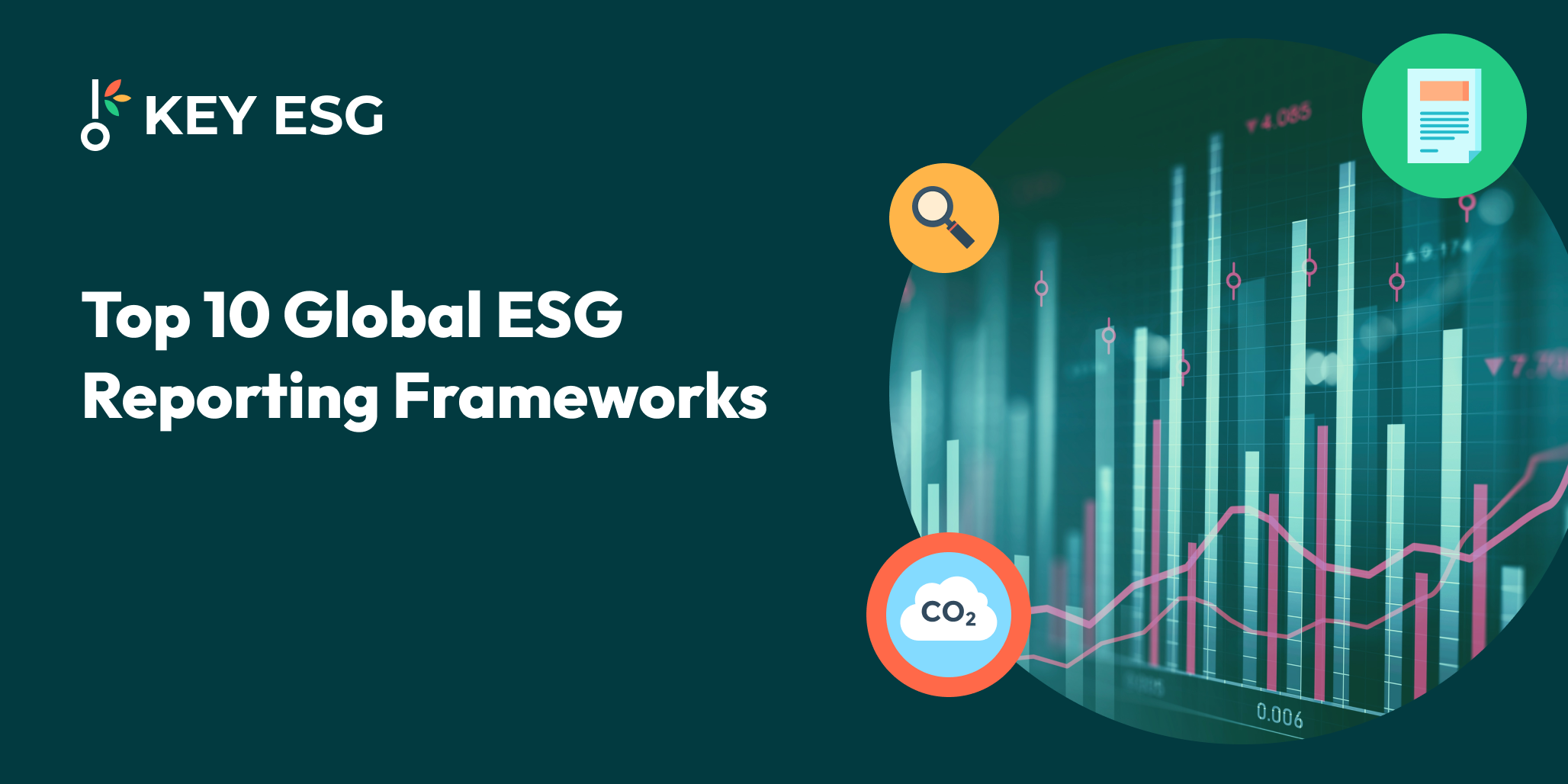ESG in private equity - state of the market
Invest Europe, an association with a membership of private equity investors, has recently published the second edition of its ESG KPI report. The study analysed data from 1,057 private equity firms, encompassing 2,216 funds and 6,531 portfolio companies from the year 2021 to 2022.
This blog will summarise the key insights from various metrics across ESG factors.
Environmental management
Environmental management systems are used to help companies reduce their environmental impacts and streamline their operations. The report highlights that 28% of the portfolio companies surveyed have environmental management systems in place, and of those, 56% have been externally certified. The gold standard for certification of environmental management systems is through ISO 14001.
Carbon emissions
1,237 companies fed their scope 1, 2 and 3 emissions into this report, with the consumer goods and services industry coming out with the highest emissions across all scopes. The ICT sector recorded the lowest sector emissions across all scopes, as well as the narrowest distribution.
The carbon intensity outlook, which is a company’s emissions per unit of economic output or activity (e.g. per full-time employee or dollar of revenue), of companies surveyed across 2021 and 2022 is broadly the same. In 2022, 41% of companies’ carbon intensity profiles reduced by more than 10%, 39% increased by more than 10% and 20% of companies lying in between.
Renewable energy
Promisingly, renewable energy consumption as a percentage of energy consumption is increasing. There was a 13% reduction in companies relying on less than 40% renewable energy, and an 11% increase in the amount of companies relying on more than 80% renewable energy.
Net-zero targets
There is also a positive trend emerging in the setting of net-zero targets, with a 2% increase in companies with targets from 2021 to 2022, however the number is still relatively low, at 12%. It is worthwhile pointing out that of the companies with net-zero targets, 55% are set for 2030 or earlier. Companies should take care when setting net-zero targets and understand that achieving net-zero but relying heavily on carbon offsets is not good practice and may be subject to regulatory risk, such as the EU ban on ‘carbon neutral’ claims that rely heavily on offsets. Read this article to find out more about the difference between ‘net-zero’ and ‘carbon neutral’.
Gender diversity
Across the portfolio companies that responded, there was an average of 38% female FTEs. Women accounted for 26% of board seats and around 78% of boards were 11-40% female. Only 5% of boards were made up of more than 50% women.
Governance policies
70% of portfolio companies had anti-corruption policies, 71% had cybersecurity risk policies and initiatives, and 82% had employee and customer privacy policies. Out of the private equity firms, 78% had an ESG policy.
Independent board members
On average, only 30% of the board members of the portfolio companies surveyed were independent, however this number had grown by 8% from 2021 to 2022.
It is very useful to see the overall state of the market when it comes to ESG in private equity, for companies to benchmark themselves against their peers and see where they can pursue competitive advantages. This is especially pertinent when benchmarks are sector-specific, given the complex and varied nature of sustainability profiles between companies and sectors. At KEY ESG, we utilise industry ESG benchmarks to help our customers easily analyse their data and put it into context. This helps them pursue competitive advantages and easily identify areas where they might be able to improve their performance. To find out more, speak to a member of our team or request a demo of our software.
ESG in private equity - state of the market
Invest Europe, an association with a membership of private equity investors, has recently published the second edition of its ESG KPI report. The study analysed data from 1,057 private equity firms, encompassing 2,216 funds and 6,531 portfolio companies from the year 2021 to 2022.
This blog will summarise the key insights from various metrics across ESG factors.
Environmental management
Environmental management systems are used to help companies reduce their environmental impacts and streamline their operations. The report highlights that 28% of the portfolio companies surveyed have environmental management systems in place, and of those, 56% have been externally certified. The gold standard for certification of environmental management systems is through ISO 14001.
Carbon emissions
1,237 companies fed their scope 1, 2 and 3 emissions into this report, with the consumer goods and services industry coming out with the highest emissions across all scopes. The ICT sector recorded the lowest sector emissions across all scopes, as well as the narrowest distribution.
The carbon intensity outlook, which is a company’s emissions per unit of economic output or activity (e.g. per full-time employee or dollar of revenue), of companies surveyed across 2021 and 2022 is broadly the same. In 2022, 41% of companies’ carbon intensity profiles reduced by more than 10%, 39% increased by more than 10% and 20% of companies lying in between.
Renewable energy
Promisingly, renewable energy consumption as a percentage of energy consumption is increasing. There was a 13% reduction in companies relying on less than 40% renewable energy, and an 11% increase in the amount of companies relying on more than 80% renewable energy.
Net-zero targets
There is also a positive trend emerging in the setting of net-zero targets, with a 2% increase in companies with targets from 2021 to 2022, however the number is still relatively low, at 12%. It is worthwhile pointing out that of the companies with net-zero targets, 55% are set for 2030 or earlier. Companies should take care when setting net-zero targets and understand that achieving net-zero but relying heavily on carbon offsets is not good practice and may be subject to regulatory risk, such as the EU ban on ‘carbon neutral’ claims that rely heavily on offsets. Read this article to find out more about the difference between ‘net-zero’ and ‘carbon neutral’.
Gender diversity
Across the portfolio companies that responded, there was an average of 38% female FTEs. Women accounted for 26% of board seats and around 78% of boards were 11-40% female. Only 5% of boards were made up of more than 50% women.
Governance policies
70% of portfolio companies had anti-corruption policies, 71% had cybersecurity risk policies and initiatives, and 82% had employee and customer privacy policies. Out of the private equity firms, 78% had an ESG policy.
Independent board members
On average, only 30% of the board members of the portfolio companies surveyed were independent, however this number had grown by 8% from 2021 to 2022.
It is very useful to see the overall state of the market when it comes to ESG in private equity, for companies to benchmark themselves against their peers and see where they can pursue competitive advantages. This is especially pertinent when benchmarks are sector-specific, given the complex and varied nature of sustainability profiles between companies and sectors. At KEY ESG, we utilise industry ESG benchmarks to help our customers easily analyse their data and put it into context. This helps them pursue competitive advantages and easily identify areas where they might be able to improve their performance. To find out more, speak to a member of our team or request a demo of our software.


.avif)


%20(1).avif)
